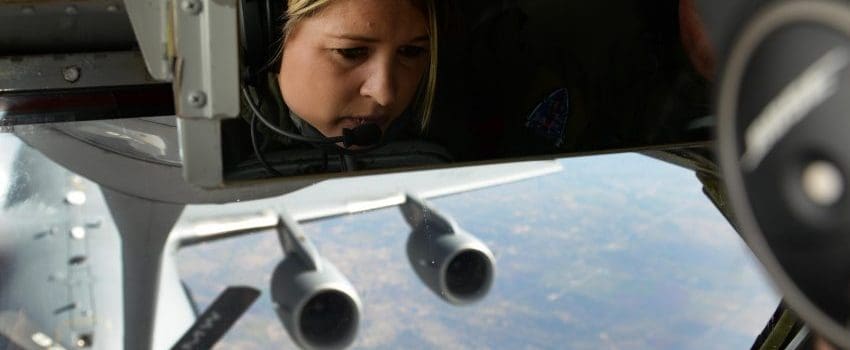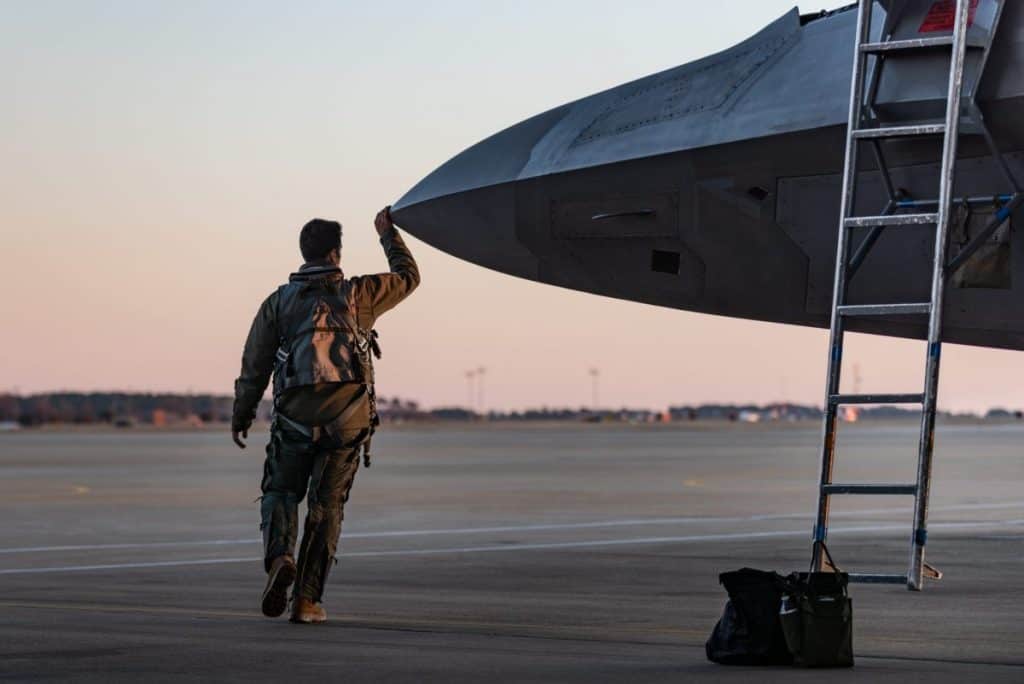The Ultimate Military Pilot Career Path (Part 2)

Welcome back, future aviators! In Part 1 of this series we saw how getting hired by a Guard or Reserve unit right out of college is the Ultimate Military Pilot Career Path. The military pays for your flight training, you get to enjoy operating amazing military aircraft, and you can start your parallel career as an airline pilot (or anything else) years sooner than an Active Duty military pilot. I hope this sounds like a great deal to you because it is. Can you believe that there’s a way to make this deal even better?
Table of Contents
- What Guard Units Want
- Free College Done Right
- Choosing the Right Enlisted Specialty
- Enlisted Here, Officer There
- Financial Advantages
- Game-Changing Retirement Advantages
What Guard Units Want
It turns out that getting hired by a Guard or Reserve unit is neither easy nor guaranteed. There are only so many slots, and even though this is a pretty well-kept secret, there are plenty of qualified applicants for each job. Your advantage comes from understanding something fundamental about the nature of these military units.
Unlike Active Duty flying squadrons where 1/3 of the members leave every year, most people stay in a Guard or Reserve squadron for their entire career. This means that when a squadron hires a prospective pilot right out of college, they’re committing to a 10-30 year relationship with that person. That’s a big deal!
Put yourself in their shoes for a moment. Would you feel comfortable committing yourself to a multi-decade relationship with someone you don’t know? I sure wouldn’t! Ideally, you’d spend some time getting to know the other person first. That’s why we date, sometimes for years, before we get married. I guarantee that a Guard or Reserve unit would rather have some time to get to know you before they commit to footing the $1,000,000 bill for your pilot training and then working with you for the rest of your career.
Thankfully, they can get exactly what they want. Every flying unit needs support personnel. From maintainers, to records keepers, to flight equipment specialists and more, there are dozens of support personnel for every pilot in a flying squadron. Most of these people are enlisted troops, rather than officers. A person can enlist right after (or sometimes even just before finishing) high school and only owe a few years of service.
Free College Done Right
If you want to be a military pilot in the Air Force, you’re going to need a 4-year college degree. If you want to truly optimize the Ultimate Military Pilot Career Path, you can enlist with the Guard or Reserve unit where you want to fly, and work part-time for them while you’re in college. I cannot overstate the benefits of this choice.
First off, this gives your unit full four years to get to know you. (And vice-versa.) They can find out whether you’re a hard worker or the kind of person who just makes more work for everyone else. They can find out if you’re interesting and funny (the kind of person they’ll want to deploy with for the next 20+ years) or if you don’t quite have the right kind of chemistry. They can see how quickly you learn new things, how hard you study, and gauge how serious you are about becoming a pilot.
Every single unit would rather send their own people to pilot training for all these reasons. They’ll give a fair shot to everyone who applies, but all else being equal, they’d always rather give a slot to one of their own before they hire a stranger. You can drastically improve your chances of getting a pilot slot with your desired unit by spending your college years working with them as an enlisted Airman.
Choosing the Right Enlisted Specialty
Personally, I’d choose a job that has the most positive impact on and exposure to the pilots in the unit. My first choice would be Crew Chief. This person is responsible for getting aircraft ready to fly. He or she meets the pilot or crew when they show up at the aircraft, helps get them settled in, takes part in the startup process, and deals with any issues that arise. After the jet lands, the Crew Chief is responsible for keeping the aircraft clean, serviced, and ensuring maintenance gets done on time. It’s very hard work, but there is no better way to earn your future pilot job than to be the best Crew Chief your unit has ever seen.
If I knew that I definitely wanted to fly a tanker, I'd enlist as a boom operator. If my dream aircraft has flight engineers or loadmasters, then I'd go for one of those jobs. These give you the absolute best opportunity to get to know the people in your unit. You'll fly with them every day. You'll spend time on the road together. You'll fly combat missions together. If the pilots in your unit like flying with you as an enlisted aircrew member, it will be a no-brainer for them to send you to UPT.
There are plenty of other great, high-exposure jobs out there. As long as you do great work in them, it will help you when you’re ready to submit your application for a pilot slot. To me, this is enough of a benefit to justify this career move.
Enlisted Here, Officer There
Although this is an ideal setup, there is a chance that your unit won’t want or be able to hire you when you finish college. There’s also a chance that you’ll want to apply to a different unit that flies a different type of aircraft. While you’ll always maximize the benefits of this path by enlisting with the unit where you’ll eventually become a pilot, it’s not mandatory. If you give your unit lots of reasons to like you, they’ll go out of their way to help you achieve your dreams. They’ll help find other units that are hiring pilots and they’ll be proud to recommend you. The Guard and Reserve are tight-knit communities, and your unit’s recommendation may be nearly as good as if you’d enlisted in that other unit in the first place. As long as you focus on being outstanding in your job, your unit will take care of you.







